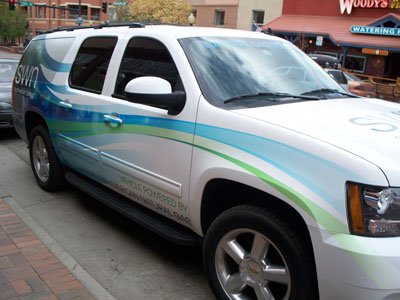Recently, Southwestern Energy (SWN) employees gathered to discuss the possibilities of vehicles that run entirely on compressed natural gas (CNG). Among the group from SWN, were a few employees currently traveling from Houston to Long Beach, California driving some of these CNG vehicles.
A spokesperson for the company said, “2011 was a record setting year for natural gas production in which the company’s production increased by 500 billion cubic feet, that’s a 24% increase.” These numbers make SWN the eighth largest producer of natural gas in the country. While the company also invests in a large share of oil reserves, they currently focus on natural gas due to the volatility of the petroleum industry. This change in focus caused SWN to push CNG vehicles as alternatives to standard petroleum fueled automobiles.
The company believes that the United States has a plentiful supply of natural gas. CNG vehicles can utilize that natural gas and make the United States less dependent on foreign oil. Currently, the U.S. has “well over 100 years of supplies at current use” of natural gas. Because of the plentiful domestic supplies, CNG offers a more affordable option for future fuel sources. SWN employee and Colorado School of Mines alumnus Orion Sandoval compared the $1.35 price per gallon of CNG to the $3.99 price of gasoline he saw driving into Mines. Additionally, the company touts CNG as a more environmentally friendly alternative to oil. When compared to using gasoline, “natural gas is on average 20-75% cleaner in some of the key emissions that come out of your tailpipe everyday.”
SWN uses their own work force to kick-start the conversion to CNG. Just this past year, they awarded twenty-one employees with brand new CNG vehicles. The company also provides financial incentives to any employee who converts his or her own vehicle to CNG. The biggest cost in converting a car is getting an EPA approval, which Sandoval estimated to cost about $10,000. The company believes that CNG vehicles are a realistic alternative to gasoline. Sandoval explained that the mileage of CNG compares well to gasoline vehicles. Furthermore, according to Sandoval, “CNG is as safe, if not safer than gasoline.” This is because of the ignition temperature and the gaseous properties of the fuel. Compared to gasoline which pools on the ground when a leak springs, explosions are far less likely with CNG vehicles.
Natural gas pipelines run to most homes in the US, so fueling the cars can occur in the home. However, because of the lack of CNG in some areas of the US, the employees have been forced to take a less direct route to California. Once they arrive, they will have made the trip on 95% natural gas, with the other 5% coming from gasoline during a stretch of the trip where no CNG fuel stations existed. This brings up another benefit of CNG vehicles which is that they run on both gasoline and CNG.
The company is enthusiastic about the future possibilities of CNG vehicles in the US and invited people to research the vehicles that made the stop at Mines during the trip to California.



'Southwestern Energy discusses compressed natural gas' has no comments
Be the first to comment this post!